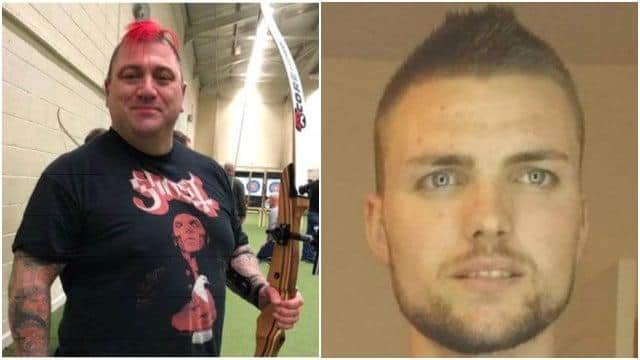Widow of smart motorway death crash victim vows to continue fight for hard shoulder despite 'safety' work starting this week


Claire Mercer wants smart motorways scrapped on safety grounds following the death of her husband, Jason, in June 2019.
Jason, 44, from Rotherham and Alexandru Murgeanu, 22, from Mansfield, were killed when a lorry driven by 40-year-old Prezemyslaw Szuba crashed into their vehicles after they stopped to exchange details following a minor collision where there is no hard shoulder near Sheffield.
Advertisement
Hide AdAdvertisement
Hide AdSzuba, from Hull, was jailed for 10 months last October for causing death by careless driving but Mr Mercer’s wife said the wrong person was prosecuted because smart motorways should never have been given the go-ahead.
Coroner David Urpeth recorded a verdict of unlawful killing and vowed to write to Highways England and Transport Secretary Grant Shapps asking for a review of smart motorways after ruling that the lack of a hard shoulder ‘contributed’ to the deaths.
South Yorkshire Police and Crime Commissioner, Dr Alan Billings, also wrote to Mr Shapp to express his concerns at the safety of smart motorways.
New figures emerged over the weekend showing an increase in deaths on smart motorways, with 14 in 2019, 11 deaths in 2018 and five in 2017.
Advertisement
Hide AdAdvertisement
Hide AdWork begins this week to install extra technology to improve safety along the smart motorway in South Yorkshire.
Highways England will be installing a radar-based system to detect vehicles which have stopped in live lanes.
Once detected, the system alerts Highways England's regional control room teams who can then locate the scene on CCTV, verify the presence of a stationary vehicle and allocate the appropriate resources to respond to the incident.
This can include closing lanes, lowering the speed limit and setting signs and signals informing other road users of the road conditions ahead.
Advertisement
Hide AdAdvertisement
Hide AdThe system is being installed on the M1 between junction 32 and 35a near Sheffield.
Highways England said: “Installing this additional technology on the M1 near Sheffield will further enhance safety features already included along this stretch of motorway. These include emergency areas, CCTV, technology to set signs and signals to close lanes, display warning and e-information messages, including Red X signs, and variable speed limits to slow down approaching traffic.
“This scheme forms part of a national roll out of this technology.
“The roll out of the new technology is part of the Government’s 18-point action plan to further improve safety on England’s busiest sections of motorway. The Transport Secretary has asked Highways England to bring forward the roll-out of stopped vehicle detection from 2023 to 2022.”
Advertisement
Hide AdAdvertisement
Hide AdBut widow Mrs Mercer said: “They are forcing as many changes through as quickly as possible so that it will get to the point where they say ‘we are too far along with this, we’ve spent too much, we can’t abandon smart motorways now’.
“But I will not stop fighting until we have a return of hard shoulders.
“They got rid of them to improve traffic flow, but post pandemic will as many people be using the motorway network when so many companies now allow employees to work at home?
"The number of fatalities on smart motorways is horrific.”